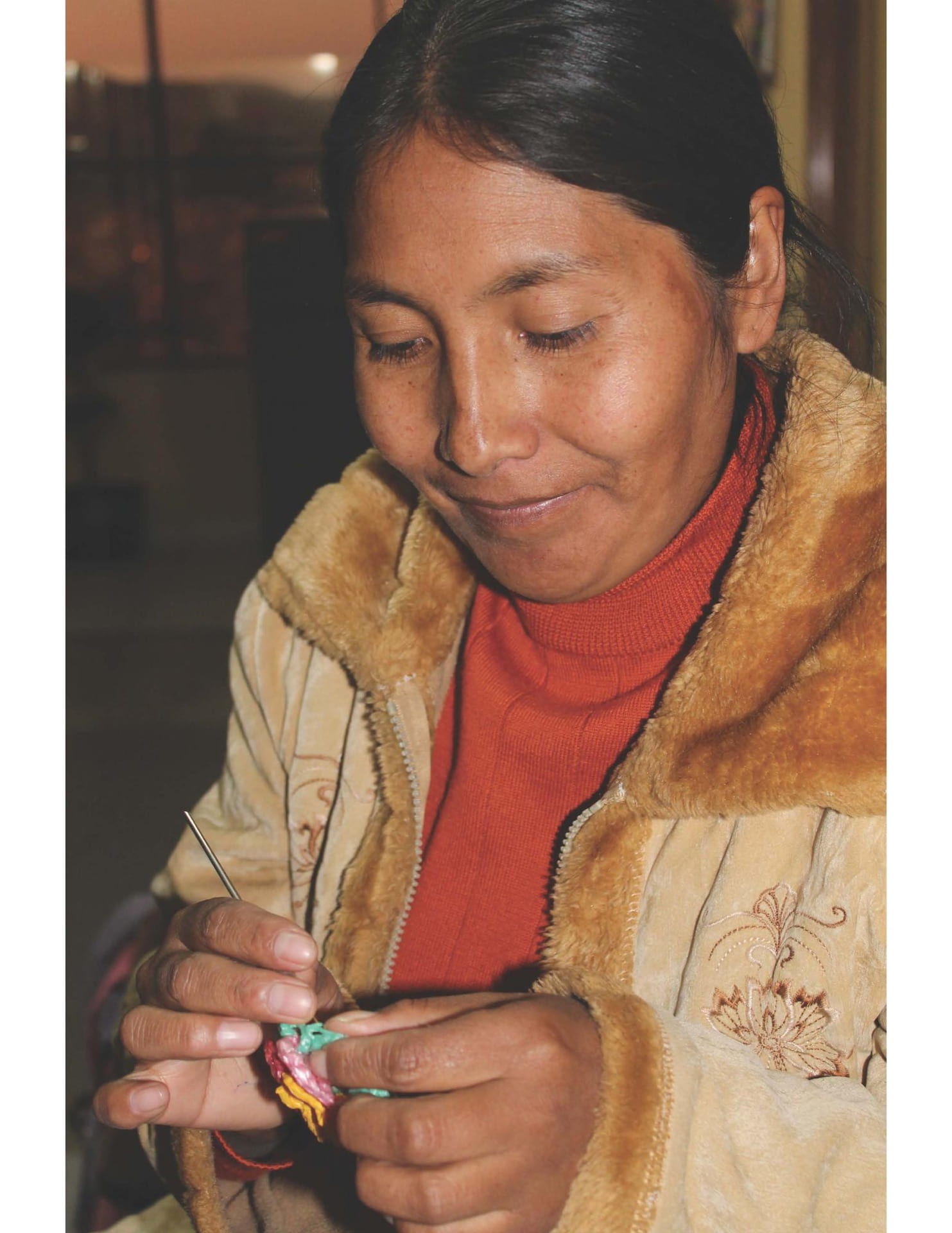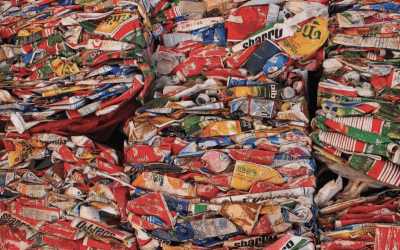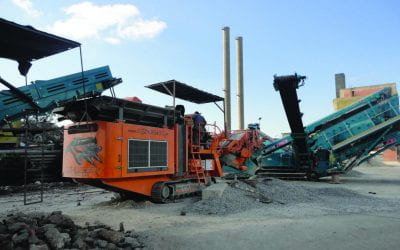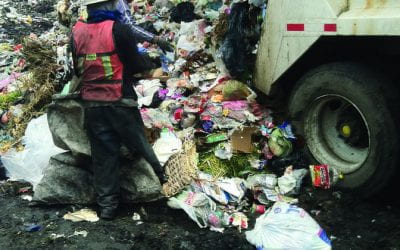A Recycling (of) Tradition
At first glance, the indigenous women—known as cholitas—looked like all the others who dance in the festive parades that regularly weave through the sharply angled streets of La Paz. Yet, at second glance, one would see that instead of being adorned with bright feathers or sequined corsets, these women danced with black plastic bags and newspaper hats. Their attire was composed entirely of recycled materials.
This was the 10th annual folkloric dance festival held by the La Paz Asociación de Centros de Mujeres (ACM), which supports some 20 organizations within the city and its surrounding areas. In many ways, a public exhibition to raise environmental awareness is entirely in keeping with recent Bolivian socio-political discourse. Since Evo Morales assumed the presidency in 2006, the rhetoric of the ruling MAS party has been infused with references to establishing and protecting an equal relationship with the earth deity known as the Pachamama, an approach reflecting a need to promote the Andean spiritual worldview of the country’s majority indigenous population, Morales’ constituent base.
In 2011, Bolivia joined its Ecuadorian neighbors in amending its constitution to grant nature equal rights to humans. Despite this legal recognition, however, the administration has struggled to rid itself of the extractivist logic of its neoliberal predecessors, and many critics have noted a rather large gap between policy and practice, most evidenced by the continuing backlash surrounding the administration’s plans to build a highway through the protected Territorio Indígena Parque Nacional Isiboro-Sécure, or TIPNIS.
On a more micro level, one can see that the message of environmental protection is not yet particularly resonant with the Bolivian populace just by hopping onto an intercity bus; passing through town after town, it is impossible not to notice the piles of trash lining the streets or the fellow passengers contributing to them by nonchalantly tossing unwanted items out the bus windows. On the first day of my recent stay in Sopocachi, an upper-middle class La Paz neighborhood, I watched as two fat pigs happily paraded from street corner to street corner, gorging themselves on tasty heaps of garbage. More unsettling than the act itself was that I seemed to be the only one that gave it a second glance; apparently many of Bolivia’s urban residents have gotten used to the sight of these impromptu buffets.
Especially in the country’s metropolitan areas of Cochabamba, La Paz, El Alto and Santa Cruz, thousands of pounds of waste are produced daily, and estimates suggest that upwards of 80 percent could be recycled if infrastructure existed to support it. Until the Morales administration takes a more concerted initiative, however, events like that held by the ACM will only likely play a greater part in raising awareness and molding public discourse on this issue and others.
While the ACM carnival highlighted the importance of recycling in an entertaining fashion, it was the repurposing of traditional dance that distinguished it from other displays and allowed it to bring to bear two other matters: the leading role of women in Bolivian socio-political practice and the conceptualization of new forms—urban and cosmopolitical—of indigeneity. When I spoke with one group leader, she said that the idea to hold a recycling-themed dance evolved from the fact that women are the ones directly involved with taking care of family. So while the event may have been based on a rather conservative premise that has itself been recycled for many years, the notion of women leading the way on issues of social and political import speaks to a more progressive stance, a type of green feminism rooted in indigenous practice, an idea truly worth recycling.
Winter 2015, Volume XIV, Number 2
Andrew Lantz, a Ph.D. Candidate in the Department of Hispanic Studies at Texas A&M University, is an aspiring photographer. His dissertation research focuses on contemporary indigenous and independent filmmaking in Bolivia. He can be reached at alantz@tamu.edu.
Related Articles
Garbage: Editor’s Letter
Religion is a topic that’s been on my ReVista theme list for a very long time. It’s constantly made its way into other issues from Fiestas to Memory and Democracy to Natural Disasters. Religion permeates Latin America…
Buenos Aires, Wasteland
English + Español
Walking down Avenida Juan de Garay last week, I passed a giant black trash bag that had ballooned and burst. Orange peels, tomatoes, candy wrappers…
First Take: Waste
Waste—its generation, collection and disposal—is a major global challenge in the 21st century. Cities are responsible for managing municipal waste. Solid…







